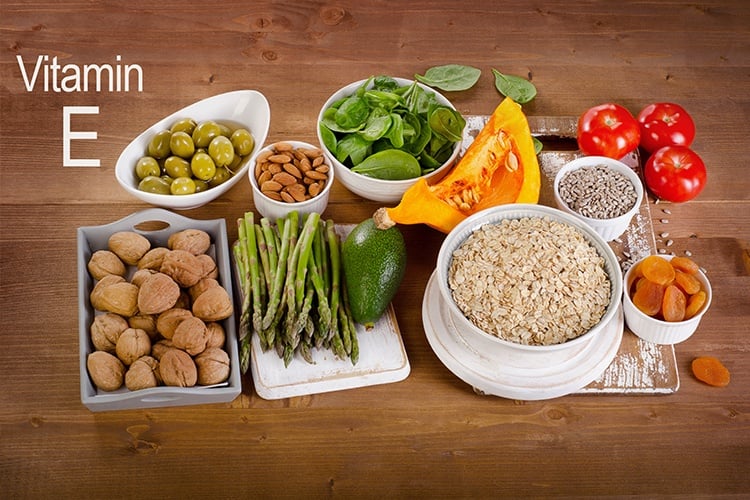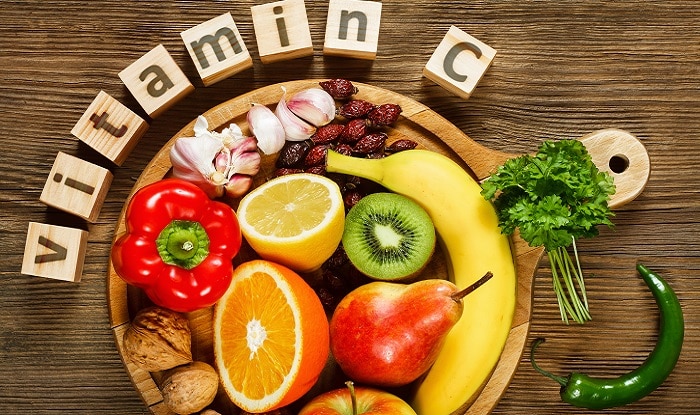Myth Vs Reality On Anti-Aging Vitamins
Paying extra for vitamins will get you bit more than an empty wallet, according to dermatologists. Very few are really effective in reversing or preventing skin damage although many face creams contain vitamins called antioxidants.
Despite advertising claims, virtually all available topical formulas contain very low concentrations of antioxidants which aren't well absorbed by skin.There are just three antioxidants which have been demonstrated to decrease the effect of sunlight on the epidermis and actually prevent further harm: Zinc, vitamin E, and vitamin C.
Antioxidants are known to stop agents called free radicals in the body and the skin.
Experts say the issue with applying antioxidants to the skin to resist aging is they are absorbed or only have short-term effects . But new research presented at the conference suggests formulations that are effective to deliver two of those antioxidants to skin that requires it might be accessible.
Selenium
The mineral selenium helps protect the body from germs, such as skin cancer caused by sun exposure. It also preserves tissue elasticity and slows down the aging and hardening of tissues. Sources of this nutrient include garlic, fish, whole grain cereals, and eggs.
Recent animal studies have found that if selenium is obtained orally or through the skin in the shape of L-selenomethionine, it provided protection against both everyday and UV damage. A study also showed selenium delayed the development of skin cancer.
Vitamin E
Experts consider vitamin E to be the most important antioxidant because it protects cell membranes and prevents damages to enzymes associated with them.Natural sources of vitamin E include vegetable oils such as sunflower oil, grains, oats, nuts, and dairy products.
New lab studies suggest vitamin E helps free radicals, which makes them less likely to induce damage. Different studies have shown applying vitamin E into the skin can reduce damage caused by sunlight exposure and limit the production of cells.
For additional sun protection, people may consider taking vitamin E supplements.Supplementation using vitamin E in 400 mg a day has been noted to decrease photo damage, wrinkles and improve skin texture.
Vitamin C
Vitamin C is the most popular antioxidant found in skin. Additionally, it is found in vegetables and citrus fruits and vegetables. Like vitamin E, vitamin C is considered significant in fixing free radicals preventing them from becoming cancerous or hastening the procedure.
Since vitamin C is the most prevalent in the skin, the skin is the organ that suffers most from environmental stressors.Smoking, sunlight exposure, and contamination rob the nutrient in our bodies.
Even minimal UV exposure may reduce the vitamin C levels in the skin by 30 percent, while exposure from the ozone of city pollution may reduce the amount 55 per cent.
Developing a skin lotion that carries a useful dose of vitamin C is tough when exposed to oxygen, since it reacts quickly. Several clinical trials analyzing stable, formulations that are effective are now under way.
Despite advertising claims, virtually all available topical formulas contain very low concentrations of antioxidants which aren't well absorbed by skin.There are just three antioxidants which have been demonstrated to decrease the effect of sunlight on the epidermis and actually prevent further harm: Zinc, vitamin E, and vitamin C.
Antioxidants are known to stop agents called free radicals in the body and the skin.
Experts say the issue with applying antioxidants to the skin to resist aging is they are absorbed or only have short-term effects . But new research presented at the conference suggests formulations that are effective to deliver two of those antioxidants to skin that requires it might be accessible.
Selenium
The mineral selenium helps protect the body from germs, such as skin cancer caused by sun exposure. It also preserves tissue elasticity and slows down the aging and hardening of tissues. Sources of this nutrient include garlic, fish, whole grain cereals, and eggs.
Recent animal studies have found that if selenium is obtained orally or through the skin in the shape of L-selenomethionine, it provided protection against both everyday and UV damage. A study also showed selenium delayed the development of skin cancer.
Vitamin E
Experts consider vitamin E to be the most important antioxidant because it protects cell membranes and prevents damages to enzymes associated with them.Natural sources of vitamin E include vegetable oils such as sunflower oil, grains, oats, nuts, and dairy products.
New lab studies suggest vitamin E helps free radicals, which makes them less likely to induce damage. Different studies have shown applying vitamin E into the skin can reduce damage caused by sunlight exposure and limit the production of cells.
For additional sun protection, people may consider taking vitamin E supplements.Supplementation using vitamin E in 400 mg a day has been noted to decrease photo damage, wrinkles and improve skin texture.
Vitamin C
Vitamin C is the most popular antioxidant found in skin. Additionally, it is found in vegetables and citrus fruits and vegetables. Like vitamin E, vitamin C is considered significant in fixing free radicals preventing them from becoming cancerous or hastening the procedure.
Since vitamin C is the most prevalent in the skin, the skin is the organ that suffers most from environmental stressors.Smoking, sunlight exposure, and contamination rob the nutrient in our bodies.
Even minimal UV exposure may reduce the vitamin C levels in the skin by 30 percent, while exposure from the ozone of city pollution may reduce the amount 55 per cent.
Developing a skin lotion that carries a useful dose of vitamin C is tough when exposed to oxygen, since it reacts quickly. Several clinical trials analyzing stable, formulations that are effective are now under way.
No matter what you do,the external creams would never be sufficient for your healthy skin. Anti Ageing Supplements like youngevity imortalium are the best alternatives for anti-ageing creams.
To get the best nutritional supplement visit Young90health



Comments
Post a Comment